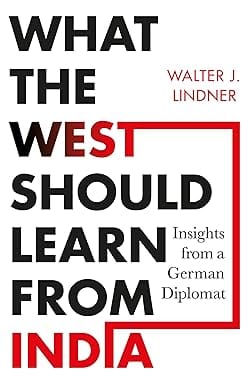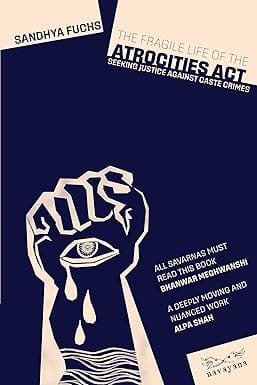WELCOME TO MIDLAND BOOK SHOP!
SHOP FOR
- Contemporary Fiction
- Contemporary Fiction
- Children
- Children
- Comics & Graphic Novels
- Comics & Graphic Novels
- Non-Fiction
- Non-Fiction
- Fiction
- Fiction
Shop No.20, Aurobindo Palace Market, Hauz Khas, Near Church +91 9818282497 | 011 26867121 110016 New Delhi IN
Midland The Book Shop ™
Shop No.20, Aurobindo Palace Market, Hauz Khas, Near Church +91 9818282497 | 011 26867121 New Delhi, IN
+919871604786 https://www.midlandbookshop.com/s/607fe93d7eafcac1f2c73ea4/677cda367903fd013d69b606/without-tag-line-480x480.png" [email protected]9780691274157 66bc9c22d3ae34002b5c592e A Peoples Constitution The Everyday Life Of Law In The Indian Republic https://www.midlandbookshop.com/s/607fe93d7eafcac1f2c73ea4/66bc9c23d3ae34002b5c5936/71i-hprrlpl-_sy425_.jpg 9780691274157
It has long been contended that the Indian Constitution of 1950, a document in English created by elite consensus, has had little influence on India’s greater population. Drawing upon the previously unexplored records of the Supreme Court of India, A People’s Constitution upends this narrative and shows how the Constitution actually transformed the daily lives of citizens in profound and lasting ways. This remarkable legal process was led by individuals on the margins of society, and Rohit De looks at how drinkers, smugglers, petty vendors, butchers, and prostitutes-all despised minorities-shaped the constitutional culture.
The Constitution came alive in the popular imagination so much that ordinary people attributed meaning to its existence, took recourse to it, and argued with it. Focusing on the use of constitutional remedies by citizens against new state regulations seeking to reshape the society and economy, De illustrates how laws and policies were frequently undone or renegotiated from below using the state’s own procedures. De examines four important cases that set legal precedents: a Parsi journalist’s contestation of new alcohol prohibition laws, Marwari petty traders’ challenge to the system of commodity control, Muslim butchers’ petition against cow protection laws, and sex workers’ battle to protect their right to practice prostitution.
Exploring how the Indian Constitution of 1950 enfranchised the largest population in the world, A People’s Constitution considers the ways that ordinary citizens produced, through litigation, alternative ethical models of citizenship.
The Constitution came alive in the popular imagination so much that ordinary people attributed meaning to its existence, took recourse to it, and argued with it. Focusing on the use of constitutional remedies by citizens against new state regulations seeking to reshape the society and economy, De illustrates how laws and policies were frequently undone or renegotiated from below using the state’s own procedures. De examines four important cases that set legal precedents: a Parsi journalist’s contestation of new alcohol prohibition laws, Marwari petty traders’ challenge to the system of commodity control, Muslim butchers’ petition against cow protection laws, and sex workers’ battle to protect their right to practice prostitution.
Exploring how the Indian Constitution of 1950 enfranchised the largest population in the world, A People’s Constitution considers the ways that ordinary citizens produced, through litigation, alternative ethical models of citizenship.
Review
"This book offers genuinely original insights into the transformation of India’s Constitution into a living reality of social and economic life. Its emphasis on the role of ordinary citizens, and civil society organizations, provides a fascinating perspective ignored in standard accounts focusing on the statecraft of political elites in New Delhi."-Bruce Ackerman, Yale University
“The study of India’s Constitution, perhaps one of the most important documents of the twentieth century, has long been neglected. In A People’s Constitution, De shows how it generated forms of democratic behaviour among the nation’s less elite subjects-an important idea, given that India is the world’s largest democracy. No other work so lucidly explains the Indian Constitution, and this informative and original book will be widely read.”-Durba Ghosh, Cornell University
“Rich and deeply researched, this groundbreaking legal history will speak to readers in many fields and countries. De shows how ordinary citizens played a
“The study of India’s Constitution, perhaps one of the most important documents of the twentieth century, has long been neglected. In A People’s Constitution, De shows how it generated forms of democratic behaviour among the nation’s less elite subjects-an important idea, given that India is the world’s largest democracy. No other work so lucidly explains the Indian Constitution, and this informative and original book will be widely read.”-Durba Ghosh, Cornell University
“Rich and deeply researched, this groundbreaking legal history will speak to readers in many fields and countries. De shows how ordinary citizens played a
in stockINR 479
1 1
Email ID already exists!
Your Current password is incorrect
Password Updated Successfully
Thanks for your Feedback
A Peoples Constitution The Everyday Life Of Law In The Indian Republic
ISBN: 9780691274157
₹479
₹599 (20% OFF)SIZE GUIDE
Sold By: Hauz Khas - Aurobindo Market
Details
- ISBN: 9780691274157
- Author: Rohit De
- Publisher: Princeton University Press
- Pages: 312
- Format: Paperback
Book Description
It has long been contended that the Indian Constitution of 1950, a document in English created by elite consensus, has had little influence on India’s greater population. Drawing upon the previously unexplored records of the Supreme Court of India, A People’s Constitution upends this narrative and shows how the Constitution actually transformed the daily lives of citizens in profound and lasting ways. This remarkable legal process was led by individuals on the margins of society, and Rohit De looks at how drinkers, smugglers, petty vendors, butchers, and prostitutes-all despised minorities-shaped the constitutional culture.
The Constitution came alive in the popular imagination so much that ordinary people attributed meaning to its existence, took recourse to it, and argued with it. Focusing on the use of constitutional remedies by citizens against new state regulations seeking to reshape the society and economy, De illustrates how laws and policies were frequently undone or renegotiated from below using the state’s own procedures. De examines four important cases that set legal precedents: a Parsi journalist’s contestation of new alcohol prohibition laws, Marwari petty traders’ challenge to the system of commodity control, Muslim butchers’ petition against cow protection laws, and sex workers’ battle to protect their right to practice prostitution.
Exploring how the Indian Constitution of 1950 enfranchised the largest population in the world, A People’s Constitution considers the ways that ordinary citizens produced, through litigation, alternative ethical models of citizenship.
The Constitution came alive in the popular imagination so much that ordinary people attributed meaning to its existence, took recourse to it, and argued with it. Focusing on the use of constitutional remedies by citizens against new state regulations seeking to reshape the society and economy, De illustrates how laws and policies were frequently undone or renegotiated from below using the state’s own procedures. De examines four important cases that set legal precedents: a Parsi journalist’s contestation of new alcohol prohibition laws, Marwari petty traders’ challenge to the system of commodity control, Muslim butchers’ petition against cow protection laws, and sex workers’ battle to protect their right to practice prostitution.
Exploring how the Indian Constitution of 1950 enfranchised the largest population in the world, A People’s Constitution considers the ways that ordinary citizens produced, through litigation, alternative ethical models of citizenship.
Review
"This book offers genuinely original insights into the transformation of India’s Constitution into a living reality of social and economic life. Its emphasis on the role of ordinary citizens, and civil society organizations, provides a fascinating perspective ignored in standard accounts focusing on the statecraft of political elites in New Delhi."-Bruce Ackerman, Yale University
“The study of India’s Constitution, perhaps one of the most important documents of the twentieth century, has long been neglected. In A People’s Constitution, De shows how it generated forms of democratic behaviour among the nation’s less elite subjects-an important idea, given that India is the world’s largest democracy. No other work so lucidly explains the Indian Constitution, and this informative and original book will be widely read.”-Durba Ghosh, Cornell University
“Rich and deeply researched, this groundbreaking legal history will speak to readers in many fields and countries. De shows how ordinary citizens played a
“The study of India’s Constitution, perhaps one of the most important documents of the twentieth century, has long been neglected. In A People’s Constitution, De shows how it generated forms of democratic behaviour among the nation’s less elite subjects-an important idea, given that India is the world’s largest democracy. No other work so lucidly explains the Indian Constitution, and this informative and original book will be widely read.”-Durba Ghosh, Cornell University
“Rich and deeply researched, this groundbreaking legal history will speak to readers in many fields and countries. De shows how ordinary citizens played a
User reviews
NEWSLETTER
Subscribe to get Email Updates!
Thanks for subscribing.
Your response has been recorded.

India's Iconic & Independent Book Store offering a vast selection of books across a variety of genres Since 1978.
"We Believe In The Power of Books" Our mission is to make books accessible to everyone, and to cultivate a culture of reading and learning. We strive to provide a wide range of books, from classic literature, sci-fi and fantasy, to graphic novels, biographies and self-help books, so that everyone can find something to read.
Whether you’re looking for your next great read, a gift for someone special, or just browsing, Midland is here to make your book-buying experience easy and enjoyable.
We are shipping pan India and across the world.
For Bulk Order / Corporate Gifting
 +91 9818282497 |
+91 9818282497 |  [email protected]
[email protected]
Click To Know More
INFORMATION
ACCOUNT
QUICK LINKS
ADDRESS
Midland Book Shop - Hauz Khas
Shop No.20, Aurobindo Palace Market, Near Church, New Delhi
Shop No.20, Aurobindo Palace Market, Near Church, New Delhi














